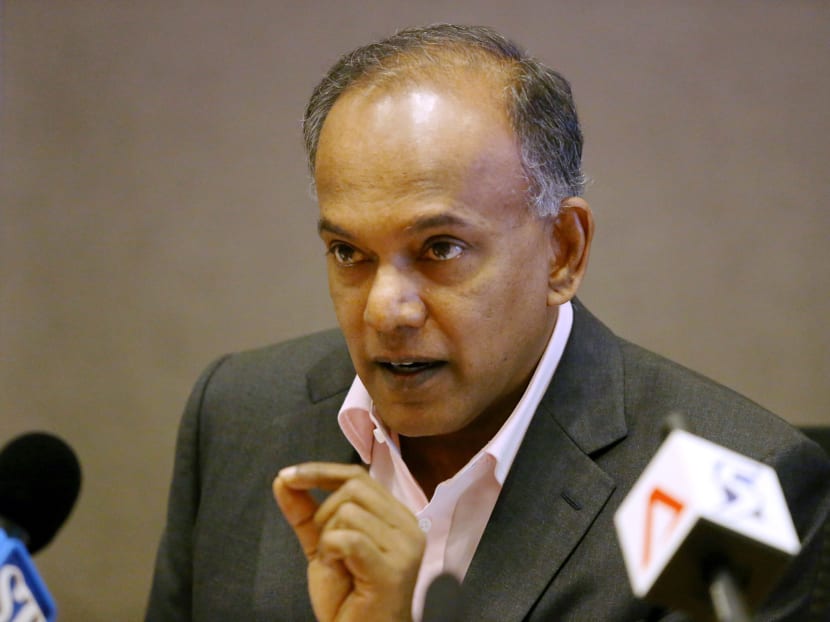Moderate religious groups can guide followers on inclusive practices: Shanmugam
SINGAPORE — Moderate religious groups would do society a great service by providing a “stamp of authority” on some thorny issues that crop up in the day-to-day practice of religion, said Law and Home Affairs Minister K Shanmugam on Friday (Oct 13).
SINGAPORE — Moderate religious groups would do society a great service by providing a “stamp of authority” on some thorny issues that crop up in the day-to-day practice of religion, said Law and Home Affairs Minister K Shanmugam on Friday (Oct 13).
They could provide guidance on living with others who hold different beliefs, without compromising one’s own religious beliefs, for instance.
“To what extent should we become more and more integrated, without compromising our religious principles? For example, how do we eat together?” said Mr Shanmugam at the International Conference on the Role of Muslim NGOs in Promoting Culture of Peace. The conference, organised by Jamiyah Singapore and the Islamic, Educational, Scientific and Cultural Organisation (ISESCO), was held at the Pan Pacific Hotel.
“If communities are distanced, they don’t eat together, they don’t mix, they can’t shake hands, they can’t exchange greetings … to what extent do we have those policies within Singapore?” he questioned. “And to what extent can that then allow for a successful community which is integrated with the rest of the majority? How do the majority and the minority come together, if people are split by these practices?”
Citing the recent incident of a launderette in Malaysia putting up a sign allowing only Muslims to patronise it, Mr Shanmugam said beyond philosophy and “high ideals”, moderate religious organisations should get down to practical day-to-day issues to prevent confusion on the ground.
“I would say it would do us a great service, it would do our Muslims as well as non-Muslim community a great service, if some of these very thorny, sensitive issues on day-to-day reading and practices are actually considered in conferences like this,” he said.
But extremism and divisive practices are not restricted to any one religion.
The high-profile nature of terrorist attacks in recent years, linked to those claiming to act in the name of Islam, has created a mindset amongst many people associating Islam with terrorism, he said. This, governments must actively dispel because “that is precisely what the terrorists want”.
Calling on non-governmental organisations, community and religious leaders to help promote religious and social harmony, Mr Shanmugam said laws in Singapore – such as the Maintenance of Religious Harmony Act – allow the government to tackle extremism. But laws cannot create positive feelings towards others. “They can prevent negative actions but to create a positive community, you need to go beyond,” he said.
Multiculturalism and peace among religions is the duty of the government and the community.
Religious teachings and interpretations of the teachings should “be a formulation for you to soar, not (an) attempt to keep you in”, said Mr Shanmugam.
The Muslim community here can be a beacon for other Muslim communities in its strong practice of faith and religious observance, as well as being deeply successful in the commercial and scientific world, he added.







